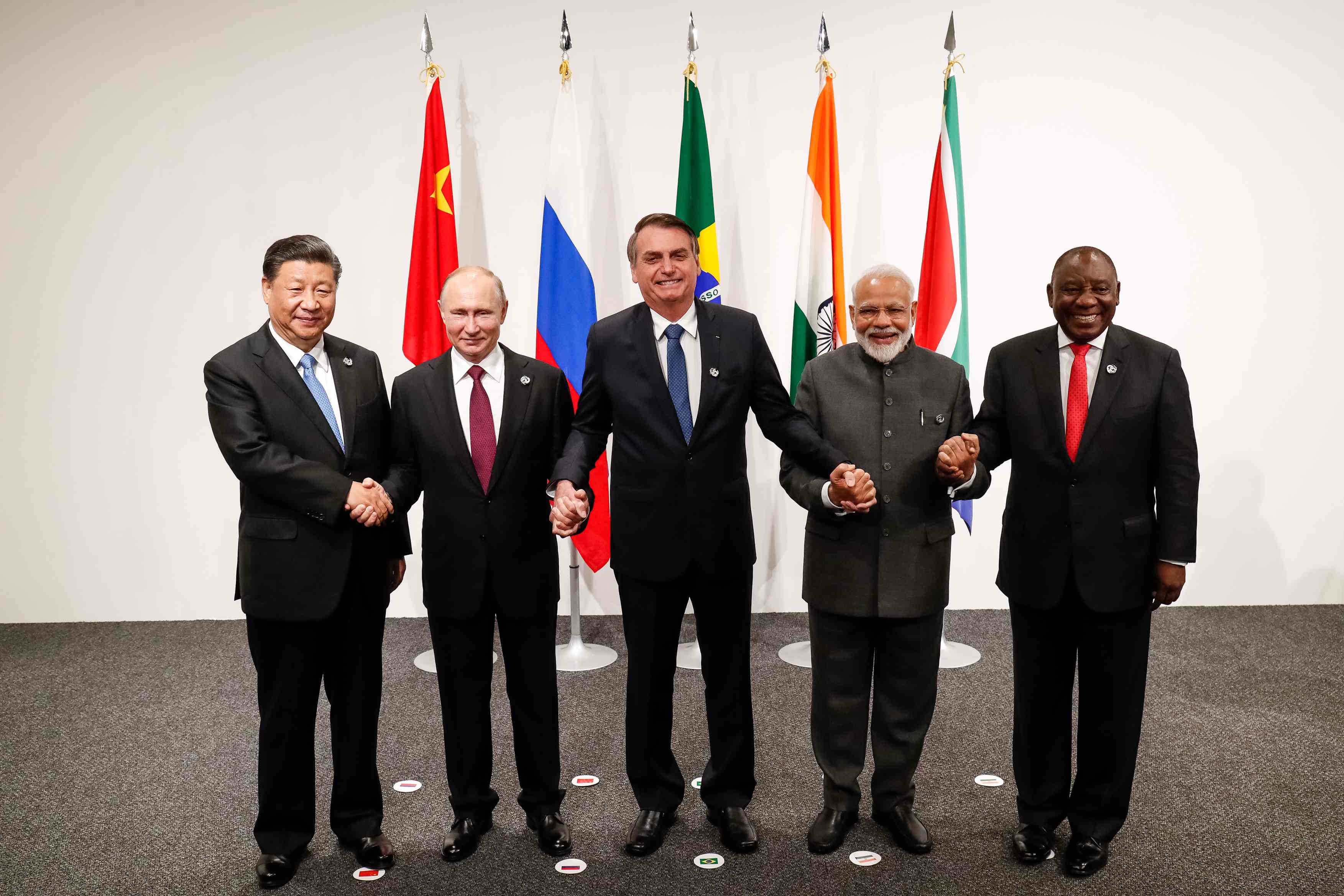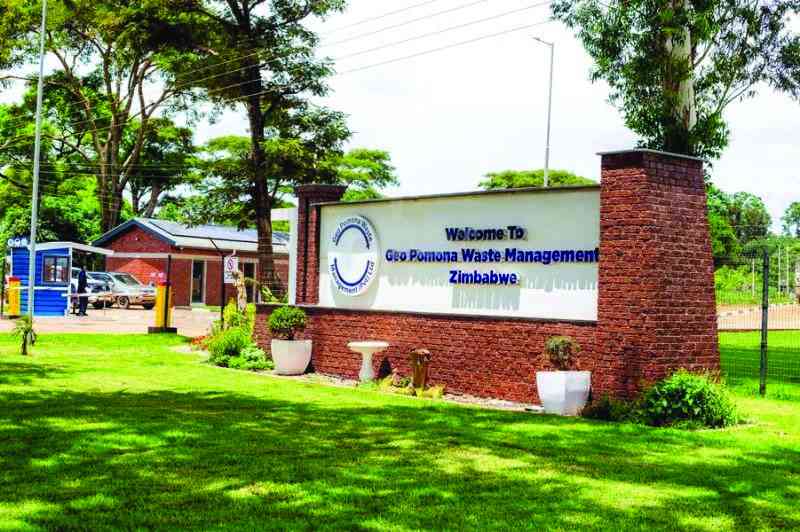
BY NICHOLAS SHUBITZ
T
he Brics bloc’s share of global gross domestic product (GDP) has overtaken that of the G7 in terms of purchase power parity, with the gap expected to widen as more countries join the bloc.
Potential candidates include Saudi Arabia, Iran, Argentina, Indonesia, Nigeria, Turkey, Mexico and the United Arab Emirates. Now Zimbabwe has expressed interest in joining.
With one of Africa’s best-educated populations and a rich endowment of natural resources, Zimbabwe stands to benefit greatly from Brics membership.
Having faced years of public policy-induced economic decline, worsened by Western sanctions, the nation has struggled to grow its economy and stabilise its currency despite numerous interventions.
The government even initiated a scheme whereby domestically produced gold could be bought at a discount in Zimbabwe dollars.
- Mavhunga puts DeMbare into Chibuku quarterfinals
- Bulls to charge into Zimbabwe gold stocks
- Ndiraya concerned as goals dry up
- Letters: How solar power is transforming African farms
Keep Reading
The hope was that this arbitrage opportunity would encourage investors to convert their United States dollars to Zimbabwe dollars to buy the discounted gold, which would in turn narrow the gap between the exchange rates on the official and parallel markets.
Despite some initial success the innovative scheme could not prevent the US dollar re-emerging as the country’s dominant currency.
According to the most recent analysis by Bloomberg, almost 80% of economic activity in Zimbabwe is now being conducted in US dollar despite the reintroduction of the Zimbabwe dollar less than five years ago.
Though it probably wouldn’t save Zimbabwe’s currency, joining Brics could help Zimbabwe resolve some of its other economic issues by enabling better access to loan capital and greater export revenues.
Commodity-hungry Brics countries such as China and India have already shown an interest in exploiting the country’s mineral wealth and have large export markets that could help restore Zimbabwe’s once-flourishing agricultural sector.
As many of the Brics countries already have strong ties to Zimbabwe, Brics membership may seem like a good idea to some.
But as Zimbabwe has a far weaker and smaller economy compared with other Brics nations its addition to the bloc is likely to be approached cautiously.
Yet, if Zimbabwe were able to fulfil its full economic potential due to Brics membership it could provide resources and offer good returns on investments for the other members, including South Africa.
Making better use of its mineral wealth would certainly be a smart move.
Zimbabwe is blessed with some of the world’s best mining resources.
But due to sanctions much of Zimbabwe’s gold must be smuggled out of the country.
This has led to the development of gold-smuggling cartels, operating between South Africa and Dubai, and suggests sanctions are promoting organised crime rather than producing political change for the benefit of Zimbabwean citizens.
Zimbabwe produces gold, platinum, diamonds, lithium, copper, cobalt and nickel.
The country’s rich nickel deposits could become an excellent source of revenue as nickel is in high demand amid tight supply dynamics due to its use in the battery technology crucial to the adoption of electric vehicles.
Maximising the economic returns on its mineral resources could help bolster Zimbabwe’s economy while strengthening the Brics monopoly in battery metals, now dominated by China, the world leader in rare earths and lithium refinery.
Agriculture is another area in which inclusion in Brics could assist Zimbabwe’s economic recovery.
The destruction of Zimbabwe’s agricultural sector after white farmers were evicted from their farms without compensation is well known.
Besides this being a cautionary tale for South Africa, it remains a great economic tragedy for a country that used to be considered Africa’s breadbasket.
Maize production recovered to its mid-1980s highs in 2021, while wheat production finally returned to near its 1998/99 record highs in 2022.
The Brics countries offer large markets for Zimbabwean agriculture exports to encourage increased production.
China could also provide development finance and machinery, while Russia could support Zimbabwe with fertilisers.
Due to recent spikes in food prices food security is becoming a greater priority for Brics, and though China seeks self-sufficiency in grains and seed oils, as the world’s largest food importer it will still require huge volumes of food imports for the foreseeable future.
The seasonal differences between the hemispheres, and differing climatic conditions, could also support inter-Brics agricultural trade due to the different crop types and harvest times between Brics countries.
While mining and agricultural are the keys to unlocking Zimbabwe’s full economic potential, the most attractive aspect of Brics membership for Zimbabwe may be the development of alternative payment systems to avoid sanctions.
The government official who mentioned Zimbabwe’s interest in joining Brics made specific reference to the development of alternatives to the Swift (Society for Worldwide Interbank Financial Telecommunications) payment system.
The inclusion of sanctioned countries such as Iran, Zimbabwe and Syria within Brics may accelerate the development of dedollarised alternative financial systems, but this would also risk making the Brics appear anti-Western.
As every country in the bloc (except Russia) still relies on the West for most of its export revenue and foreign direct investment, this will be a crucial juggling act for the Brics to manage as they seek to expand the bloc’s membership.
As a historically that supported its independence movement, and the largest importer of Zimbabwean platinum and tobacco, China may support the inclusion of Zimbabwe in Brics.
Meanwhile, though former president Robert Mugabe had strained ties with the Soviet Union, present-day relations between Zimbabwe and Russia continue to strengthen.
The Kremlin has shown a strong commitment to fostering closer ties with African nations, especially due to Western attempts to isolate the Russian Federation.
China has similarly developed deep relationships with numerous African nations.
As such, Zimbabwe’s inclusion in Brics could provide a valuable opportunity for Russia and China to further expand their influence on the continent.
Brics membership amplifies the voice and prestige of South Africa among emerging markets, and much of the country’s importance is derived from its position as the only representative of the African continent in the bloc.
If Zimbabwe and other African states are permitted to join, South Africa would no longer be the sole voice of Africa within the alliance.
*Shubitz is an independent Brics analyst. This article was first published by Business Day.







